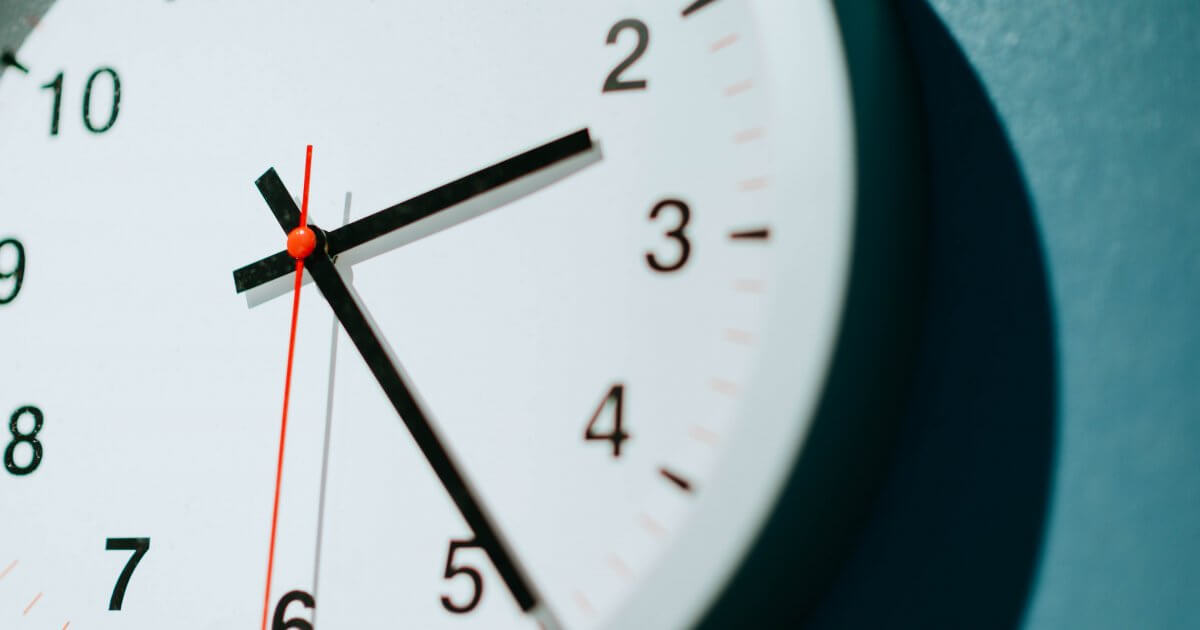What's the best time to book a routine appointment with your primary care doctor? Most would say it's the time that's most convenientthat block in your workday where you have a break in meetings, the free hour after you drop your kids at school, or the moment when you'll conveniently be passing by the doctor's office on your way to something else.
But if that convenient window happens to be in the late afternoon or early evening, a new study suggests you could be missing out on prescriptions for cancer screening testswhich if you do have cancer, can make a dramatic difference in survival.
Read MoreA similar phenomenon occurred for patients eligible for colorectal cancer screening tests. Those who saw their doctors early were most likely to receive orders for tests like colonoscopies, sigmoidoscopies, fecal immunochemical tests, fecal occult blood tests, and stool DNA tests. Like with the mammogram orders, this 8 a.m. rate of colorectal cancer screening orders (36.5 percent) dropped at 11 a.m. to 31.3 percent, then rose slightly at noon to 34.4 percent, and dropped to its lowest of 23.4 percent at 5 p.m.
The doctors are not alone in exhibiting “morning person” behavior, though; the researchers also looked into the rates at which patients prescribed these screening tests actually follow through and go on to get them done. For breast cancer screenings, those patients seen in the morning completed their tests 33.2 percent of the time, while those seen in the evening only followed through 17.8 percent of the time. The same was found for colorectal cancer screening tests; 8 a.m. doctor-goers followed through with their screenings 28 percent of the time, compared with 17.8 percent at 5 p.m.
The difference in cancer screening rates according to time of dayboth on the physician and patient sideis worrying, especially for those patients whose schedules don't allow for early morning appointments. These patients, the study suggests, could be missing out on a chance to catch a cancer before it progresses to a dangerous stage.
Screening tests are extremely important for detecting most cancers, but with breast and colorectal cancers, which rarely cause symptoms on their own, screening is even more crucial.
"Colon cancer is considered a silent and deadly killer," Dr. Heather Yeo, advisor to SurvivorNet, assistant professor of Surgery and Healthcare Policy and Research at Weill Cornell Medical College, and assistant attending surgeon at NewYork-Presbyterian/Weill Cornell Medical Center, previously told SurvivorNet. "What happens is people often don’t know that they have colon cancer. They don’t have any symptoms. That’s why we screen for colon cancer in the United States."
The same goes for breast cancer. Dr. Connie Lehman, Chief of Breast Imaging Division at Massachusetts General Hospital, previously told SurvivorNet, "We all agree regular screening mammography saves lives. Every doctor that I know, every organization that I know really encourages women to have a mammogram.”
So if the importance of screening tests is so widely agreed upon, why are we seeing a discrepancy among doctors ordering them based on the time of day?
To explain the drop in orders during the day, the JAMA researchers pointed to factors that may be out of the doctors' control, such as a struggle to catch up on appointments after falling behind (in turn, seeing individual patients for less time), or subconsciously experiencing "decision fatigue"meaning because they've spent all day weighing the decision to order screening tests, they end up less likely to even broach the subject at the end of the day.
But don’t panic if you can't fit your routine appointment into your mornings. An evening appointment is better than no appointment, and you can still walk out with an order for a cancer screening test. Regardless of the time of day, if your doctor doesn't bring up cancer screening tests on their own, it's worth raising the question yourself. Because for most cancer diagnoses, early detection is your best shot at survival.
Learn more about SurvivorNet's rigorous medical review process.

